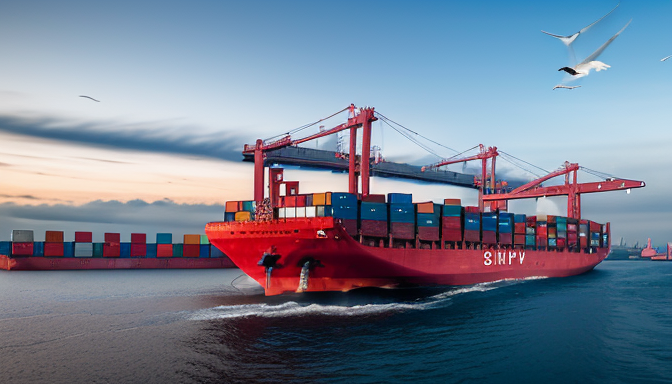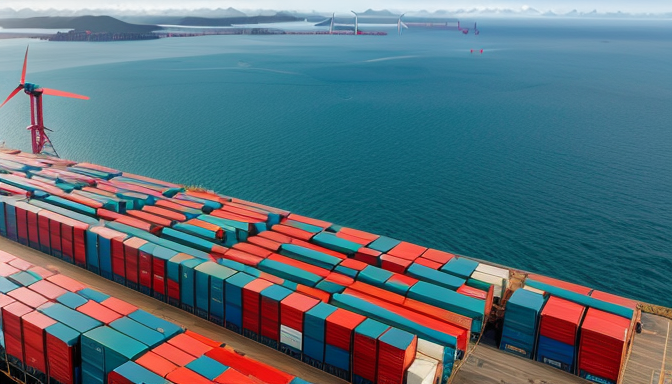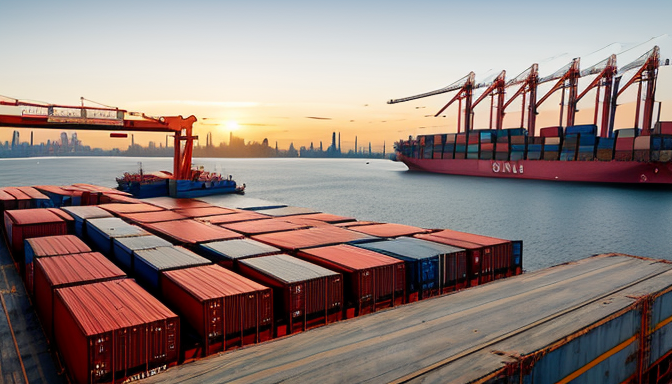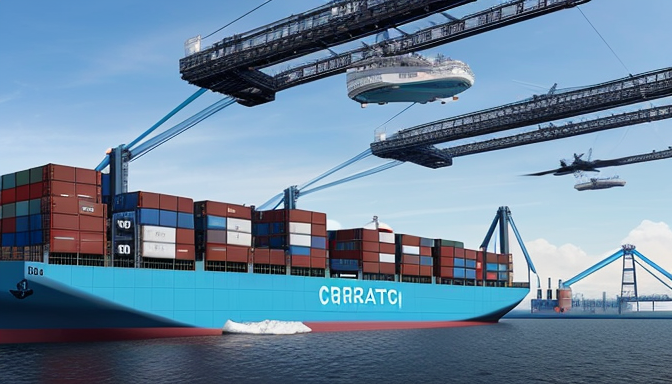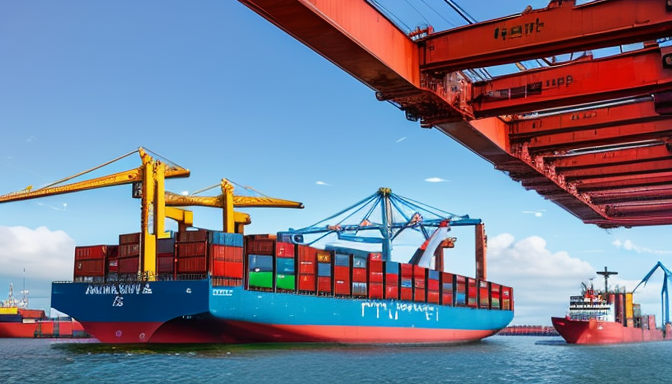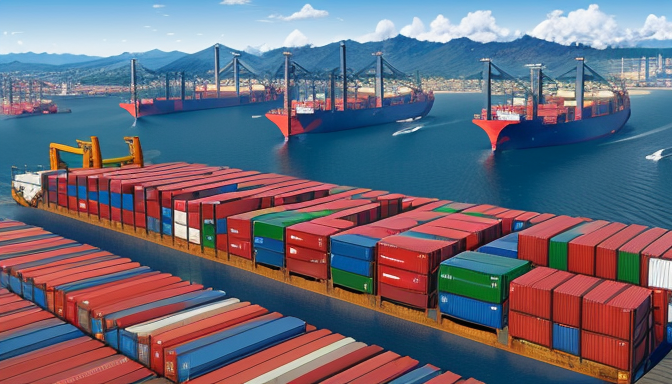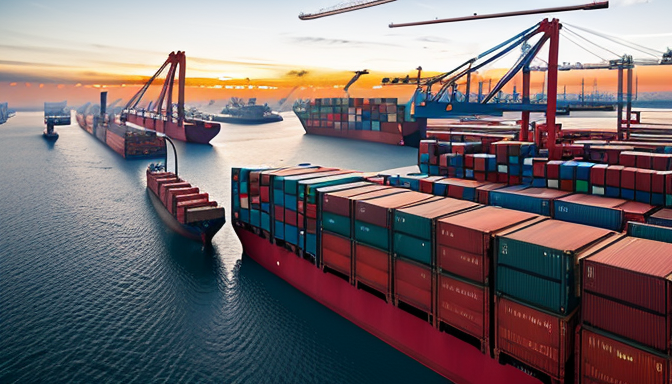Why Your Business Needs a Maritime Logistics Strategy Now
In today’s fast-paced global market, maritime logistics is more than just a method of transporting goods; it’s a lifeline for businesses aiming to thrive. As the world continues to embrace globalization, the demand for efficient shipping solutions skyrockets. Have you ever considered how a well-crafted maritime logistics strategy could transform your operations? Imagine reducing delivery times and costs while simultaneously improving customer satisfaction. Sounds appealing, right?
The maritime industry is evolving rapidly, driven by advancements in container systems and port technology. With the rise of smart ports and automated systems, businesses can now track shipments in real-time, ensuring transparency and reliability. According to recent studies, companies that adopt a robust maritime logistics strategy can see a significant reduction in operational costs—sometimes by as much as 20%! This is not just a statistic; it’s a game changer.
However, navigating the waters of maritime logistics isn’t without its challenges. From regulatory compliance to environmental concerns, businesses must stay vigilant. Understanding these trends is crucial. For instance, as shipping regulations tighten globally, companies that proactively adapt will not only comply but also gain a competitive edge.
So, are you ready to set sail on this journey? Embracing a maritime logistics strategy today could mean the difference between staying afloat and capsizing in a sea of competition. Don’t wait for the tide to turn—make your move now!
The Benefits of a Maritime Logistics Strategy
In today’s fast-paced global market, having a maritime logistics strategy is not just an option; it’s a necessity. As businesses expand their reach across borders, understanding global shipping trends becomes crucial. For instance, did you know that the rise of e-commerce has significantly increased container traffic? This surge means that companies need to adapt quickly to avoid falling behind. A well-defined maritime logistics strategy can streamline operations, ensuring that goods are transported efficiently and on time.
Moreover, by utilizing advanced container systems, businesses can optimize their shipping processes. These systems not only enhance tracking and visibility but also reduce the risk of delays. Imagine being able to monitor your shipment in real-time, knowing exactly where it is at any moment. This level of transparency builds trust with customers and fosters long-term relationships.
Another key advantage is the integration of port technology. Modern ports are equipped with state-of-the-art facilities that expedite loading and unloading processes. This technological edge can lead to significant cost savings and improved supply chain reliability. By embracing these advancements, companies can navigate the complexities of maritime logistics with greater ease.
Ultimately, investing in a maritime logistics strategy not only prepares your business for the challenges of today but also positions it for future growth. Are you ready to set sail towards success?
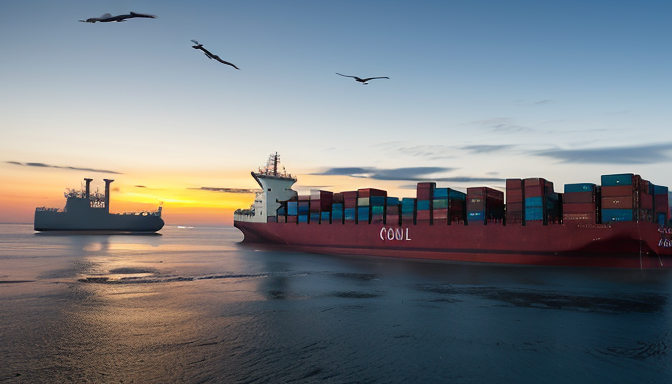
Challenges in Maritime Logistics Implementation
Implementing a maritime logistics strategy isn’t just a walk in the park; it’s more like navigating through a bustling port filled with challenges. One of the most significant hurdles businesses face is regulatory compliance. With each country having its own set of rules and regulations regarding shipping, it can feel like trying to solve a complex puzzle. For instance, customs regulations can vary widely, and failing to adhere to them can lead to costly delays and penalties.
Moreover, the maritime industry is increasingly under scrutiny for its environmental impact. As global awareness of climate change rises, businesses must adapt to stricter environmental regulations. This means investing in greener technologies and practices, which can be quite an expensive endeavor. However, the long-term benefits of sustainability can outweigh the initial costs, making it a worthwhile investment.
Another challenge is the rapid evolution of port technology and container systems. As new technologies emerge, businesses must continuously adapt and upgrade their logistics systems to stay competitive. This can be daunting, especially for smaller companies with limited resources. It’s essential to keep an eye on global shipping trends, as they can significantly influence operational strategies.
To navigate these challenges effectively, businesses need to foster strong relationships with logistics partners and invest in training their staff. By doing so, they can create a resilient maritime logistics strategy that not only overcomes obstacles but also positions them for success in a globalized market.
Frequently Asked Questions
- What is a maritime logistics strategy?
A maritime logistics strategy is a comprehensive plan that outlines how a business will manage the transportation, storage, and distribution of goods via sea routes. It focuses on optimizing shipping processes to enhance efficiency and reduce costs.
- Why is it important for my business?
In today’s global market, having a maritime logistics strategy is crucial for staying competitive. It helps streamline operations, improve supply chain reliability, and can lead to significant cost savings, making your business more agile and responsive.
- What challenges might I face when implementing this strategy?
Common challenges include navigating regulatory compliance, managing environmental concerns, and handling unpredictable variables like weather or geopolitical issues. However, with proper planning and risk management, these obstacles can be effectively addressed.
- How can I start developing a maritime logistics strategy?
Begin by assessing your current logistics processes, identifying areas for improvement, and researching best practices in maritime logistics. Collaborating with logistics experts can also provide valuable insights tailored to your business needs.
